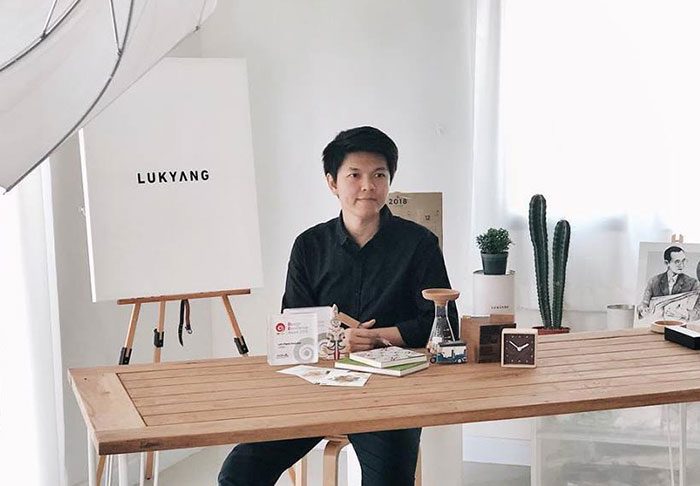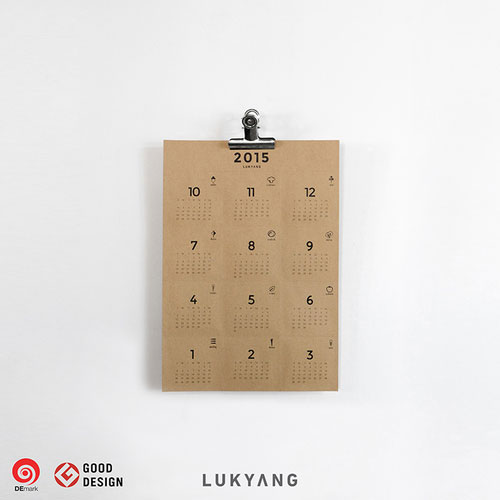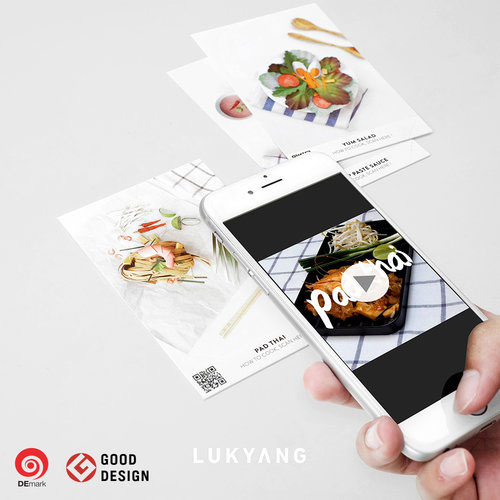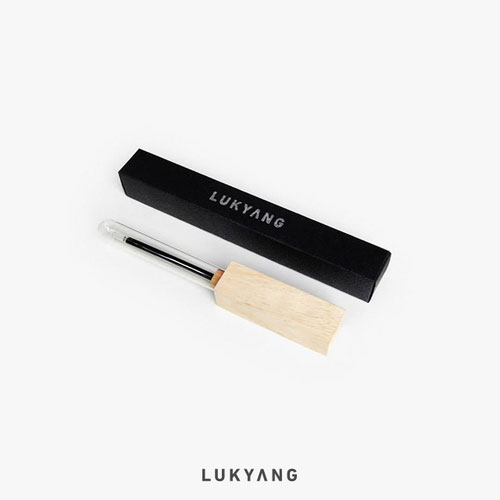
“The Lukyang brand involves eco-minimalist designs that reuse materials to create a new product.”
Weerapon Wongtawan, Creative Designer and owner of the brand Lukyang brand, winner of DEMark and G-Mark Awards 2015 and 2016, reveals how his passion for eco-design has taken Lukyang to where it is today.
How did you start Lukyang?
I started by making stationery to use myself, which I adapted from waste products. Then, when my friends saw it, they wanted to use it as well. So I started selling my stationery. The first product, the Test Tube-Pen was sold in 2014. It’s a pen made from a test tube with a reused wooden pen cover. The design was mainly to solve the problem of pens rolling off desks, through the square shape of the wood cover.
What makes your products special?
The Lukyang brand involves eco-minimalist designs that reuse materials to create a new product. My designs are based upon the idea of causing minimum environmental impact. In addition, they enhance the product. For example, Let’s Grow Plants is an environmental friendly calendar. People can reuse the calendar in a new way even if it is out-of-date by growing the vegetable seeds packed with the calendar. Another product is Let’s Plant a Postcard. It is more than just a card. People can learn about Thai food by scanning its QR code to view video content on how to cook Thai dishes. Inside the card are seeds so people can grow ingredients to create a Thai dish for themselves. These two products won the DEmark Award and Good Design Award in 2015 and 2016 respectively.
Who are your potential customers?
Our main customers are people who love creative work. Normally, the person who buys it is not the one who uses it, instead it is sent as a gift. Most of my products are souvenirs or gifts.
What is the future for Lukyang?
Lukyang is a brand with its own products, but we’re also a studio that designs products for customers. In the future, I plan to keep this dual focus. Last year, I created the latest collection of Mangosteen Peel Paper products. The stationery is created from recycled paper made from mangosteen peel with a special technique. This renewable material is eco-friendly, waterproof and colourful.
How do you view the Thai Product Design industry?
Overall, Thailand’s product design industry may not be very broad, but it has a great impact. I think Thailand’s designs are more advanced than in many neighbouring countries, especially in how Thai entrepreneurs apply Thainess to their products, and are able to achieve success in international markets.
What support have you received from the DITP?
As yet the Lukyang brand has not been exported in industrial volume, so we often join the DITP to showcase our products in exhibitions or festivals, such as Milan Design Week and Thai Festival in Singapore. We bring our products and sell them in pop-up stores with many Thai brands that have received the Demark Award. We have received great support from the DITP. I would recommend that any entrepreneur with a business idea should consult the DITP.
For more information, visit: www.lukyang.com






